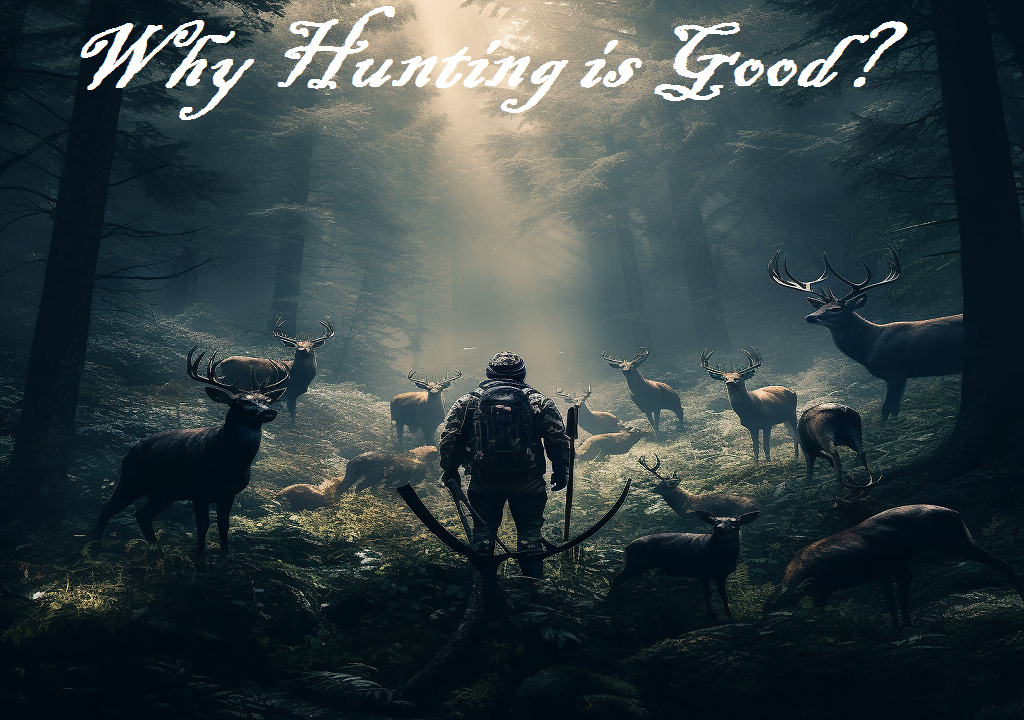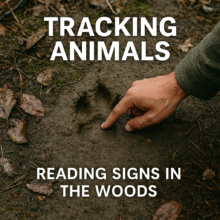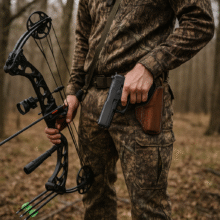Why Hunting is Good?

Hunting has been woven into the very fabric of human evolution and survival. Today, with industrialization and urban sprawl, its role has been questioned and sometimes dismissed. But is it fair to do so without acknowledging its multifaceted benefits?
Table of Contents
Table of contents
1. Ecological Balance
a. Predator Control
In regions where natural predators like wolves and mountain lions have dwindled due to factors like urbanization, deer and other prey often overpopulate. What’s the fallout? An ecosystem out of balance. Excessive grazing leads to degraded land, making it difficult for other animals and vegetation to thrive. Hunting offers a means of controlling these populations.
b. Habitat Restoration
When certain species overpopulate, it can lead to the degradation of habitats. Overgrazing, for example, can cause soil erosion and affect water sources. By controlling populations through hunting, habitats can be preserved and restored.
c. Conservation Funding
Believe it or not, hunters are some of the biggest contributors to wildlife conservation. Through the purchase of hunting licenses, permits, and taxes on gear, billions are funneled into conservation projects. And this isn’t about protecting just game animals; it covers the entire ecosystem.
2. Organic and Sustainable Meat Source
a. Health Benefits
The debate between store-bought meat and wild game tips in favor of the latter. Wild game, being free of antibiotics, hormones, and commercial feed, is leaner and richer in essential nutrients. It’s truly nature’s organic offering.
b. Ethical Eating
Industrial farming often involves cramped spaces, unnatural diets, and premature slaughter. Hunting, by contrast, involves animals that have lived freely, consumed a natural diet, and often have longer lifespans. Which meat journey sits better with your conscience?
c. Connection to Food
The modern disconnect from our food sources is alarming. Hunting bridges this gap, making individuals more cognizant of the food they consume and the process it entails.
3. Economic Benefits
a. Job Creation
Beyond the solitary image of a hunter in the woods, there’s a buzzing industry. Manufacturers of hunting gear, local guides, outfitters, and even hunting education professionals all owe their livelihood to hunting.
b. Tourism Boost
Consequently, areas recognized for their hunting prospects frequently experience a surge in local tourism. Not only do lodges benefit, but local dining establishments also thrive, leading to a notable economic uplift due to the influx of hunters.
c. Community Support
The ripple effect of hunting touches local communities too. Funds from hunting licenses often go back into local projects, enhancing infrastructure and community facilities.
4. Cultural Significance
a. Heritage and Tradition
For many communities, hunting is more than a sport. It’s a generational tradition, carrying stories, skills, and values from one generation to the next.
b. Skills and Discipline
Hunting isn’t merely about taking a shot. Firstly, it instills patience in individuals. Furthermore, it hones observation skills. Lastly, it imparts a profound understanding of nature. Consequently, doesn’t this offer a holistic approach to learning?
c. Spiritual Connection
In the midst of nature, while tracking an animal, many hunters often experience a deep spiritual connection. Moreover, this intimate bond with nature engenders a profound appreciation for life. Consequently, they develop a heightened sense of the interconnectedness of all beings.
5. Mental and Physical Benefits
a. Exercise
Maneuvering through diverse terrains, tracking, and even the act of setting up camp offers physical challenges that are both rigorous and rewarding.
b. Stress Reduction
Nature has a calming effect. The serenity, combined with the focus hunting requires, often serves as an antidote to the stressors of modern life.
c. Boosting Survival Skills
From tracking skills, understanding weather patterns, to even basic first aid – hunting is a comprehensive lesson in survival.
Conclusion
Hunting, when approached with respect, knowledge, and responsibility, offers manifold benefits to individuals, communities, and the environment. Like any tool, it’s the user’s intent and understanding that defines its impact.
Frequently Asked Questions (FAQs)
- Isn’t hunting cruel?
While some argue this point, when done ethically and responsibly, ensures quick and humane kills. It’s arguably more humane than factory farming. - What about endangered species?
Ethical hunters avoid endangered species. In fact, hunters often contribute to conservation efforts to protect these species. - How does hunting compare to other forms of wildlife control?
Methods like relocation or sterilization can be stressful and less effective. It provides a quick solution, maintaining the ecological balance. - How can hunting be sustainable?
Through regulated seasons, quotas, and conservation efforts, This can be both an ecological and sustainable practice. - Aren’t there non-lethal methods to maintain ecological balance?
While there are, methods like relocation often come with their own set of challenges. It remains one of the most direct and effective ways. - How do hunters ensure they don’t overhunt?
Regulated hunting seasons, limits on the number of animals that can be taken, and age/sex restrictions are among the measures in place. - Isn’t trophy hunting harmful?
Trophy hunting, when mismanaged, can be harmful. However, when properly regulated, the funds from it can be directed towards conservation efforts. - Are there educational programs for ethical hunting?
Absolutely! Numerous programs teach hunters about ethical practices, wildlife conservation, and responsible hunting. - How does hunting tie into local cultures?
Many indigenous and local communities have hunting at the core of their traditions, using it as a means of sustenance, storytelling, and cultural preservation. - Is hunting a sport or a necessity?
It can be both. For some, it’s a means of sustenance, while for others, it’s a sport. The key lies in the approach and the intent behind it.







